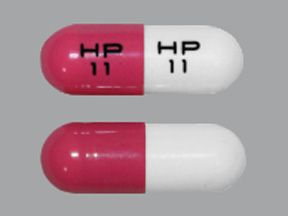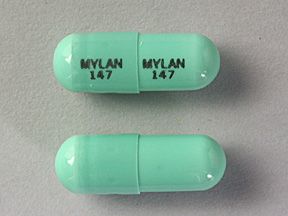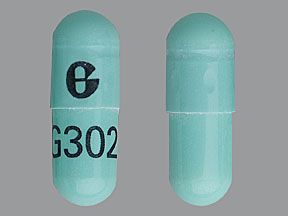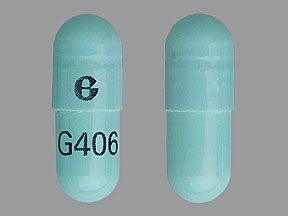This drug has boxed warnings. A boxed warning is the most serious warning from the Food and Drug Administration (FDA). It alerts doctors and patients about drug effects that may be dangerous.
- Heart risk: Indomethacin is a nonsteroidal anti-inflammatory drug (NSAID). NSAIDs may increase your risk of heart attack, heart failure, or stroke. This risk may be higher if you’re taking it long term, at high doses, or if you already have heart problems or risk factors for heart disease, such as high blood pressure. Don’t take indomethacin for pain before, during, or after heart bypass surgery. This may increase your risk for a heart attack or stroke. Talk to your doctor if you take indomethacin and will have surgery soon.
- Stomach problems. NSAIDs like indomethacin may increase your risk of serious side effects, including stomach bleeding or ulcers. These events may be fatal. They may happen at any time without symptoms. Seniors have a higher risk for serious stomach problems.
- Indomethacin oral capsule is available only as a generic drug.
- It is also available as an oral liquid suspension and rectal suppository.
- Indomethacin is used to reduce inflammation, pain, and fever. It’s used to treat rheumatoid arthritis, osteoarthritis, gouty arthritis, and shoulder pain.
Indomethacin oral capsule is a prescription drug that’s only available as a generic drug. It’s also available as an oral liquid and a rectal suppository.
Why it’s used
Indomethacin is used to reduce inflammation, pain, and fever. It’s most commonly used to treat:
- moderate to severe rheumatoid arthritis
- moderate to severe ankylosing spondylitis
- moderate to severe osteoarthritis
- acute painful shoulder (bursitis or tendinitis)
- acute gouty arthritis (immediate-release only)
This drug may be used as part of a combination therapy. That means you need to take it with other drugs.
How it works
Indomethacin is a nonsteroidal anti-inflammatory drug (NSAID). It works by blocking an enzyme in your body that leads to inflammation. Blocking the enzyme helps to reduce inflammation and pain.
Indomethacin can cause mild or serious side effects. The following list contains some of the key side effects that may occur while taking indomethacin. This list does not include all possible side effects.
For more information on the possible side effects of indomethacin, or tips on how to deal with a troubling side effect, talk with your doctor or pharmacist.
Most common side effects
The most common side effects that occur with indomethacin include:
- nausea
- vomiting
- heartburn
- diarrhea
- stomach pain
- constipation
- headache
- dizziness
- tiredness
- ringing in your ears
Serious side effects
If you experience any of these serious side effects, call your doctor right away. If your symptoms are potentially life threatening, or if you think you’re experiencing a medical emergency, call 911 or go to the nearest emergency room right away.
- Heart attack. Symptoms may include:
- chest pain
- shortness of breath
- discomfort in your upper body
- Stroke. Symptoms may include:
- face drooping
- arm weakness
- difficulty speaking
- High blood pressure. Symptoms may include:
- a dull headache
- dizzy spells
- nosebleeds
- Heart failure. Symptoms may include:
- swelling of your ankles or feet
- sudden weight gain
- tiredness
- Kidney problems. Symptoms may include:
- changes in your urine volume
- swelling of your feet or ankles
- shortness of breath
- Stomach or intestinal bleeding. Symptoms may include:
- bright-red- or black-colored stool
- tar-like stool
- red-colored vomit
- Low red blood cell (anemia) count. Symptoms may include:
- shortness of breath
- weakness
- pale-colored skin
- fast heartbeat
- Severe skin rash with blisters. You may also have a fever.
- Severe allergic reaction. Symptoms may include:
- trouble breathing
- swelling of your throat, tongue, or lips
- Liver problems. Symptoms may include:
- yellowing of your skin or the whites of your eyes
- nausea
- fatigue
- itching
- flu-like symptoms such as muscle aches, chills, and tiredness
- Asthma attacks
The indomethacin dosage your doctor prescribes will depend on several factors, which include:
- the type and severity of the condition you’re using indomethacin to treat
- your age
- the form of indomethacin you take
- other medical conditions you may have
Typically, your doctor will start you on a low dosage and adjust it over time to reach the dosage that’s right for you. They’ll ultimately prescribe the smallest dosage that provides the desired effect.
The following information describes dosages that are commonly used or recommended. However, be sure to take the dosage your doctor prescribes for you. Your doctor will determine the best dosage to suit your needs.
Forms and Strengths
Generic:
- Form: oral immediate-release capsule
- Strengths: 25 mg and 50 mg
- Form: oral extended-release capsule
- Strengths: 75 mg
Dosage for moderate to severe rheumatoid arthritis
Adult dosage (ages 18 years and older)
- Immediate-release capsule: Indomethacin is usually dosed 2 to 3 times per day and starts at a dose of 25 mg. Your doctor may increase your dose by 25 or 50 mg per day. The maximum dose is 200 mg per day.
- Extended-release capsule: The dose is 75 mg once or twice per day. The maximum dose is 150 mg per day.
Child dosage (ages 2–17 years)
- Immediate-release capsule:
- Indomethacin dosing for children is based on weight. Your doctor will determine the right dose for your child.
- A starting dose may be 1–2 mg/kg per day divided into 2–4 doses.
- The maximum dose is 3 mg/kg per day or 200 mg per day, whichever is less.
- Extended-release capsule: A safe and effective extended-release capsule dosage hasn’t been established for this age group.
Dosage for moderate to severe ankylosing spondylitis
Adult dosage (ages 18 years and older)
- Immediate-release capsule: Indomethacin is usually dosed 2 to 3 times per day and starts at a dose of 25 mg. Your doctor may increase your dose by 25 mg or 50 mg per day. The maximum dose is 200 mg per day.
- Extended-release capsule: The dose is 75 mg once or twice per day. The maximum dose is 150 mg per day.
Child dosage (ages 2–17 years)
- Immediate-release capsule:
- Indomethacin dosing for children is based on weight. Your doctor will determine the right dose for your child.
- A starting dose may be 1 to 2 mg/kg per day divided into 2 to 4 doses.
- The maximum dose is 3 mg/kg per day or 200 mg per day, whichever is less.
- Extended-release capsule: A safe and effective extended-release capsule dosage hasn’t been established for this age group.
Dosage for moderate to severe osteoarthritis
Adult dosage (ages 18 years and older)
- Immediate-release capsule: Indomethacin is usually dosed 2 to 3 times per day and starts at a dose of 25 mg. Your doctor may increase your dose by 25 mg or 50 mg per day. The maximum dose is 200 mg per day.
- Extended-release capsule: The dose is 75 mg once or twice per day. The maximum dose is 150 mg per day.
Child dosage (ages 2–17 years)
- Immediate-release capsule:
- Indomethacin dosing for children is based on weight. Your doctor will determine the right dose for your child.
- A starting dose may be 1 to 2 mg/kg per day divided into 2 to 4 doses.
- The maximum dose is 3 mg/kg per day or 200 mg per day, whichever is less.
- Extended-release capsule: A safe and effective extended-release capsule dosage hasn’t been established for this age group.
Dosage for acute painful shoulder (bursitis or tendinitis)
Adult dosage (ages 18 years and older)
- Immediate-release capsule: 75 mg to 150 mg in 3 or 4 divided doses per day for 7 to 14 days
- Extended-release capsule: 75 mg once or twice per day. The maximum dose is 150 mg per day
Child dosage (ages 2–17 years)
- Immediate-release capsule:
- Indomethacin dosing for children is based on weight. Your doctor will determine the right dose for your child.
- A starting dose may be 1 to 2 mg/kg per day divided into 2 to 4 doses.
- The maximum dose is 3 mg/kg per day or 200 mg per day, whichever is less.
- Extended-release capsule: A safe and effective extended-release capsule dosage hasn’t been established for this age group.
Dosage for acute gouty arthritis (immediate-release capsule only)
Adult dosage (ages 18 years and older)
The dose is usually 50 mg 3 times per day until your pain level reduces.
Child dosage (ages 2–17 years)
- Indomethacin dosing for children is based on weight. Your doctor will determine the right dose for your child.
- A starting dose may be 1 to 2 mg/kg per day divided into 2 to 4 doses.
- The maximum dose is 3 mg/kg per day or 200 mg per day, whichever is less.
Indomethacin oral capsule is a short-term drug treatment. It should be used for the shortest possible time to treat the problem. It comes with risks if you don’t take it as prescribed.
If you stop taking it: If you don’t take your medication, your pain and swelling may get worse.
If you take too much: If you take too much indomethacin, you may experience side effects like nausea, vomiting, very bad headaches, confusion, and convulsions. You’ll also be at a higher risk for stomach problems and bleeding.
What to do if you miss a dose: If you forget to take your dose, take it as soon as possible. If it’s almost time for your next dose, wait until then and take a single dose. Don’t double the dose to try to catch up. This could result in toxic side effects.
How to tell if the drug is working: You may be able to tell indomethacin is working if you have reduced pain, fever, swelling, and tenderness.
This drug comes with various warnings.
FDA warning: Heart risk and stomach problems
- Indomethacin has a Black Box Warning. This is the most serious warning from the Food & Drug Administration (FDA). Though the medication can still be sold and used, a black box warning alerts doctors and patients to potentially dangerous effects.
- Heart risk. Indomethacin is a nonsteroidal anti-inflammatory drug (NSAID). NSAIDs may increase your risk of heart attack, heart failure, or stroke. This risk may be higher if you’re taking it long term, at high doses, or if you already have heart problems or risk factors for heart disease, such as high blood pressure. Don’t take indomethacin for pain before, during, or after heart bypass surgery. This may increase your risk for a heart attack or stroke. Talk to your doctor if you take indomethacin and will have surgery soon.
- Stomach problems. NSAIDs like indomethacin may increase your risk of serious side effects, including stomach bleeding or ulcers. These events may be fatal. They may happen at any time without symptoms. Seniors have a higher risk for serious stomach problems.
Kidney problems warning
Indomethacin may harm your kidneys if you take it for a long time. Call your doctor if you have symptoms of kidney damage, such as:
- changes in your urine volume
- swelling of your feet or ankles
- shortness of breath
Dangerous skin reactions warning
Indomethacin can cause a skin reaction that can be fatal. Call your doctor if you have signs of a skin reaction, such as blistering, peeling, or swelling of your skin. You may also have a fever.
Pregnancy warning
Don’t use indomethacin if you’ve been pregnant for more than 29 weeks. Using it during this time can cause problems with the fetus’s heart.
Allergies
Indomethacin can cause a severe allergic reaction. Symptoms may include:
- trouble breathing
- swelling of your throat or tongue
- hives
Don’t take this drug again if you’ve ever had an allergic reaction to aspirin or other NSAIDs. Taking it again could be fatal.
Alcohol interaction
Combining this drug with alcohol may increase your risk for bleeding in your stomach or intestines. Talk to your doctor if you drink alcohol. You may need to limit how much alcohol you drink while taking this medication.
Warnings for people with certain health conditions
For people with heart conditions: Indomethacin may increase your risk for heart attack or stroke. It may also cause higher blood pressure levels.
For people with stomach problems: Indomethacin may increase your risk for swelling or bleeding in your stomach and intestines. It may also increase your risk for ulcers.
For people with kidney problems: Your kidneys may not work as well when taking indomethacin. It may damage your kidneys or lower the blood flow to your kidneys.
For people with asthma: Don’t use indomethacin if you have aspirin-sensitive asthma. It may cause a fatal allergic reaction.
Warnings for other groups
For pregnant women: Indomethacin is a category C pregnancy drug. That means two things:
- Research in animals has shown adverse effects to the offspring when the mother takes the drug.
- There haven’t been enough studies done in humans to be certain how the drug might affect the fetus.
Tell your doctor if you’re pregnant or plan to become pregnant. Indomethacin should be used during pregnancy only if the potential benefit justifies the potential risk to the fetus. Do not use indomethacin if you have been pregnant for more than 29 weeks.
For women who are breastfeeding: Indomethacin may pass through breast milk and cause serious side effects in a breastfed child. You and your doctor may need to decide whether you’ll take indomethacin or breastfeed.
For older adults: If you’re age 65 years or older, you may have a higher risk for more side effects, such as bleeding in the stomach or intestines. Also, your kidney function may be decreased. Your kidneys may not remove the drug from your body as well as they should, putting you at risk for serious side effects.
Indomethacin can interact with several other medications. Different interactions can cause different effects. For instance, some can interfere with how well a drug works, while others can cause increased side effects.
Below is a list of medications that can interact with indomethacin. This list does not contain all drugs that may interact with indomethacin.
Before taking indomethacin, be sure to tell your doctor and pharmacist about all prescription, over-the-counter, and other drugs you take. Also tell them about any vitamins, herbs, and supplements you use. Sharing this information can help you avoid potential interactions.
If you have questions about drug interactions that may affect you, ask your doctor or pharmacist.
Blood pressure medications
- angiotensin-converting enzyme (ACE) inhibitors
- angiotensin II receptor blockers
- water pills (diuretics), such as hydrochlorothiazide
These drugs may not work as well to manage blood pressure when taken with indomethacin.
Aspirin
Combining these medications increases your risk for stomach problems, including ulcers and bleeding.
Bipolar disorder drug
- lithium
Combining these drugs may cause lithium to take longer to clear from your body. This increases the level of lithium in your body, which may cause nausea, tremors, and dizziness.
Disease-modifying anti-rheumatic drug
- methotrexate
Indomethacin may increase the amount of methotrexate in your body to toxic levels. This can raise your risk for infection, kidney damage, and low white blood cell counts.
Nonsteroidal anti-inflammatory drugs (NSAIDs)
Examples are:
- ibuprofen
- meloxicam
- naproxen
Taking other NSAIDs with indomethacin may increase the risk of stomach problems.
Oral anticoagulants, blood thinners
- warfarin
- clopidogrel
- ticlopidine
- rivaroxaban
Taking these drugs with indomethacin may increase your risk for bleeding in your stomach or intestines.
Keep these considerations in mind if your doctor prescribes indomethacin oral capsule for you.
General
Take with food to reduce risk of upset stomach. Don’t crush, chew, or cut extended-release capsules. They need to be released in your body slowly.
Storage
- Store at room temperature: 68°F to 77°F (20°C to 25°C). Don’t freeze indomethacin.
- Keep this drug away from light and high temperatures.
- Store these medications away from moisture and damp locations, such as bathrooms.
Refills
A prescription for this medication is refillable. You should not need a new prescription for this medication to be refilled.
When your your doctor gives you your prescription, they will write the number of refills you can have.
Travel
When traveling with your medication:
- Always carry your medication with you. Never put it into a checked bag. Keep it in your carry-on bag.
- Don’t worry about airport X-ray machines. They can’t hurt this medication.
- You may need to show your pharmacy’s preprinted label to identify the medication. Keep the original prescription-labeled bottle with you when traveling.
Clinical monitoring
Your doctor will check you regularly for signs of stomach or intestinal bleeding. They’ll also order blood work to make sure that your liver and kidneys are working properly.
If you’re taking any drugs that may interact with indomethacin, your doctor may also order lab tests to monitor the levels of those drugs.
There are other drugs available to treat your condition. Some may be more suitable for you than others. Talk to your doctor about possible alternatives.
Disclaimer: Medical News Today has made every effort to make certain that all information is factually correct, comprehensive, and up-to-date. However, this article should not be used as a substitute for the knowledge and expertise of a licensed healthcare professional. You should always consult your doctor or other healthcare professional before taking any medication. The drug information contained herein is subject to change and is not intended to cover all possible uses, directions, precautions, warnings, drug interactions, allergic reactions, or adverse effects. The absence of warnings or other information for a given drug does not indicate that the drug or drug combination is safe, effective, or appropriate for all patients or all specific uses.






